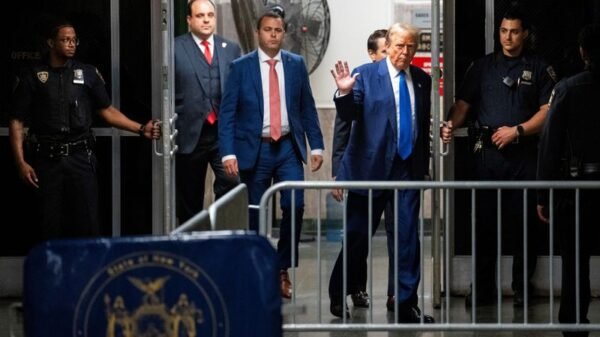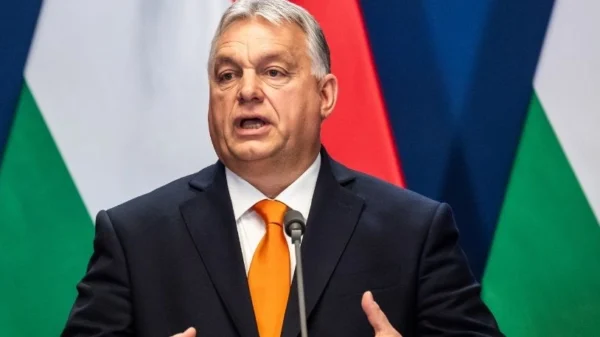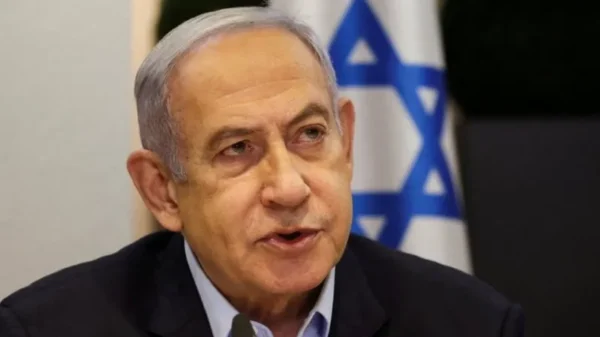Israeli Leaders Strategize: Third War Cabinet Meeting on Iran Attack Response
In a series of urgent meetings, Israel’s war cabinet convened for the third consecutive day on Tuesday, grappling with how to respond to Iran’s bold and unprecedented direct assault. Against a backdrop of mounting international pressure urging restraint, the discussions sought to navigate the perilous landscape of the already volatile Middle East.
Amidst the deliberations, Military Chief of Staff Herzi Halevi committed to a response following Saturday night’s relentless onslaught, which saw Iran unleash a barrage of more than 300 missiles, cruise missiles, and drones onto Israeli soil. Despite the promise of retaliation, the specifics remained shrouded in secrecy.
While the attack resulted in minimal casualties and damage, Israel’s formidable air defenses and swift countermeasures mitigated the impact. However, concerns escalated as the conflict threatened to transcend the confines of the Gaza war, fueling fears of a broader, full-scale confrontation between the historical adversaries.
Iran’s actions were framed as retaliation for an earlier airstrike on its embassy compound in Damascus, attributed to Israel, on April 1. Despite the tit-for-tat exchanges, Iran signaled a reluctance to escalate tensions further.
In a notable diplomatic development, President Joe Biden assured Israeli Prime Minister Benjamin Netanyahu that the United States, Israel’s staunch ally, would refrain from participating in any Israeli counter-offensive. Instead, Washington, alongside its European partners, pursued a strategy focused on ramping up economic and political sanctions to dissuade Israel from resorting to military reprisals.
Israeli Foreign Minister Israel Katz spearheaded diplomatic efforts, mobilizing support from 32 countries to advocate for sanctions targeting Iran’s missile program. Additionally, Israel endorsed Washington’s designation of Iran’s Revolutionary Guard Corps as a terrorist organization, amplifying the pressure on Tehran.
Treasury Secretary Janet Yellen reiterated the United States’ commitment to leveraging sanctions and collaborating with allies to disrupt Iran’s destabilizing activities.
European Union foreign ministers convened a virtual meeting to address the escalating tensions. Several EU members pledged to reevaluate extending sanctions against Iran. This unified stance underscored the collective resolve to prevent further regional escalation.
British Prime Minister Rishi Sunak disclosed ongoing coordination among the Group of Seven (G7) democracies to implement measures against Iran. Italy, holding the G7 presidency, floated the possibility of imposing targeted sanctions on individuals.
Iran’s Deputy Foreign Minister, Ali Bagheri Kani, issued a stark warning of swift retaliation in response to any Israeli counterattack, underscoring Iran’s readiness to react within seconds.
The looming specter of Israeli retaliation heightened anxieties among Iranians, who were already grappling with economic hardships and heightened social and political restrictions.
Since the outset of the Gaza war, skirmishes between Israel and Iran-aligned groups have erupted across multiple fronts, including Lebanon, Syria, Yemen, and Iraq. Israel reported injuries to four soldiers during an incursion into Lebanese territory, marking a significant escalation in tensions.
The White House refrained from pressuring Israel to exercise restraint, emphasizing Israel’s autonomy in determining its response to Iran’s aggression.
Despite growing tensions, the Biden administration displayed hesitancy in imposing stricter sanctions on Iran’s oil exports, citing concerns about potential repercussions on global oil prices and China’s role as a significant importer of Iranian oil.
China reassured Iran of its support in managing the crisis, urging caution to avoid further regional upheaval.
While refraining from public criticism of its ally Iran, Russia cautioned against any actions that could further escalate tensions.
In Gaza, Iran’s attack garnered praise among residents, who have endured the brunt of Israel’s offensive against Hamas, the Iranian-backed militant group governing the enclave. The conflict, sparked by a Hamas attack in October, has exacted a heavy toll on both sides.
The escalating tensions prompted disruptions in air travel, with airlines canceling or rerouting flights. European aviation authorities issued advisories cautioning against traversing Israeli and Iranian airspace amidst the heightened risk of conflict.
































































Comment Template